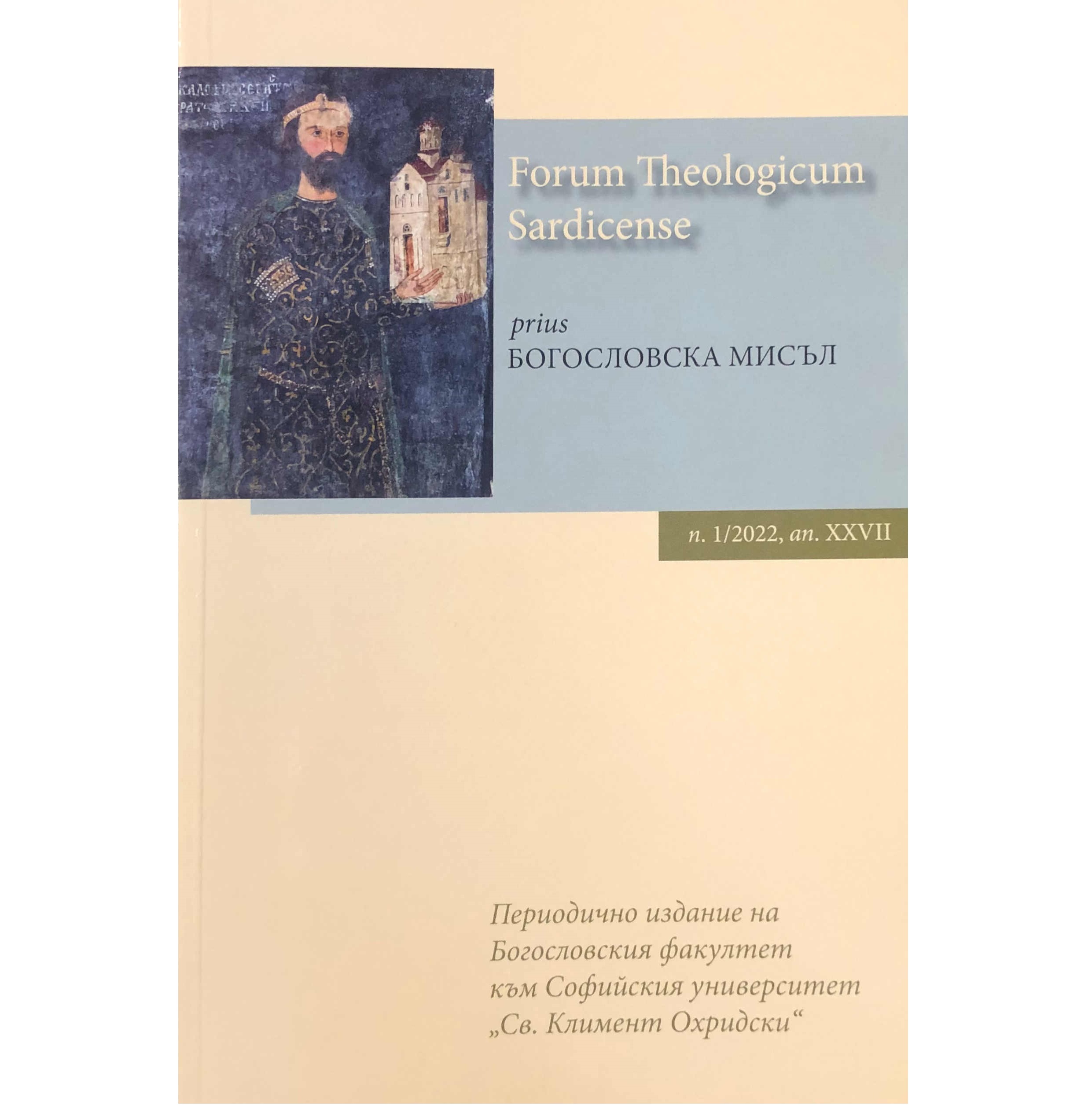The Use of term “Matter” (ὑλη) in St. John Damascene
DOI :
https://doi.org/10.60061/fths.2022.1.85-97Ключови думи :
Orthodox Theology, Patristics, St. John Damascene, Patrology, Orthodox Dogma, Orthodox Tradition, Holy FathersРезюме
The current paper examines firstly the important distinction between created (κτιστον) and uncreated (ἀκτιστον), as well as between originated (γενητὸν) and unoriginated (ἀγενητον). This is an essential philosophical and theological prerequisite for the teaching of St. John Damascene on matter. The latter’s teaching on matter is mainly contained in his works Philosophical Chapters in The fountain of Knowledge, Against the Manicheans and his treatises Against those who attack the holy images. St. John Damascene reveals one of the main ontological characteristics of creatures, which is perishability. Thus, matter cannot create individual essences, i.e., it plays no role in the creation of the world, nor it is eternal as in ancient Greek philosophy. The world exists because it was created by God, because He brought it to existence according to the Christian teaching of creatio ex nihilo. In other words, a fundamental characteristic of matter is perishability. According to St. John Damascene matter is a consequence of God’s will and action. He also identifies the word creation (κτισις) with the word matter (ὑλη) and vice versa. Therefore, by identifying matter with creation, St. John Damascene shows that matter is not a constituent element of existing things, rather, it is a consequence of their changeability and of the fact that they are created (κτιστα). Thus, a second characteristic of matter is that it is mutable or changeable and created (κτιστη). Thirdly, what is without beginning is categorically immutable and unchangeable. However, on the other hand, everything that has a beginning is mutable. Therefore, matter, as changeable in itself, has a beginning.Файлове за сваляне
Публикуван
09.09.2025
Как да цитирате
Kaminis, I. (2025). The Use of term “Matter” (ὑλη) in St. John Damascene. Forum Theologicum Sardicense, (1), 85–97. https://doi.org/10.60061/fths.2022.1.85-97
Брой
Секция
Articles
Лиценз
Авторски права (c) 2022 Ioannis Kaminis

Публикация с Creative Commons Attribution-NonCommercial 4.0 International License.

